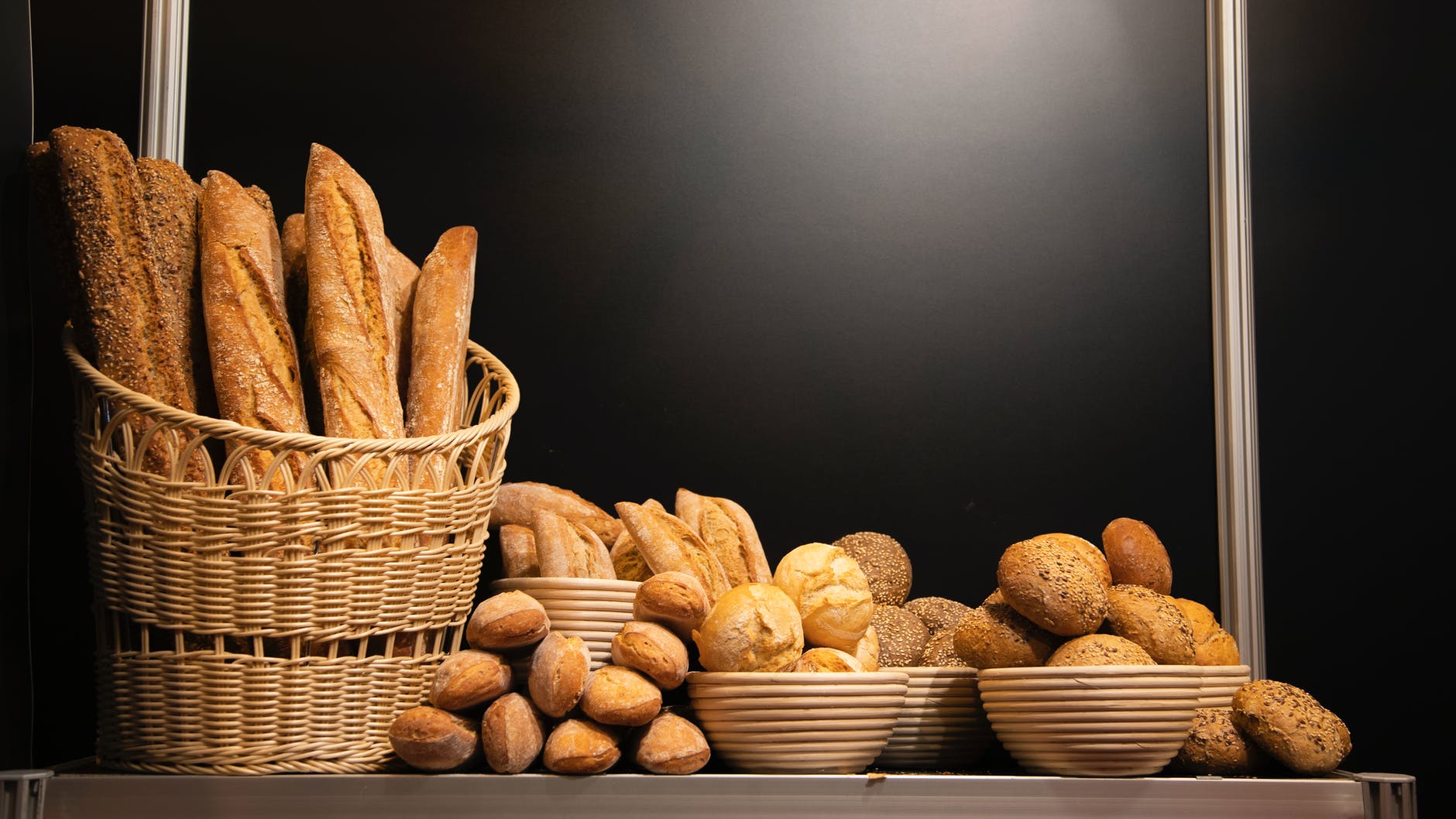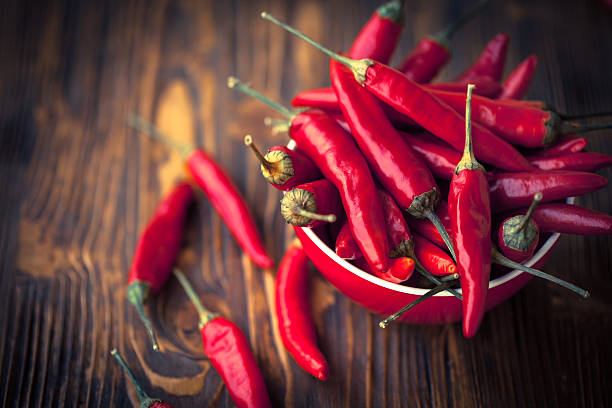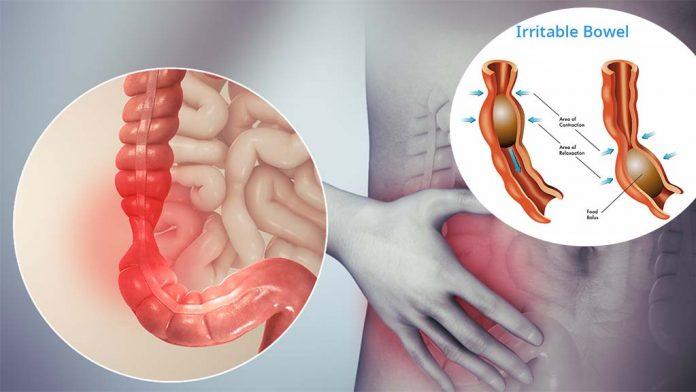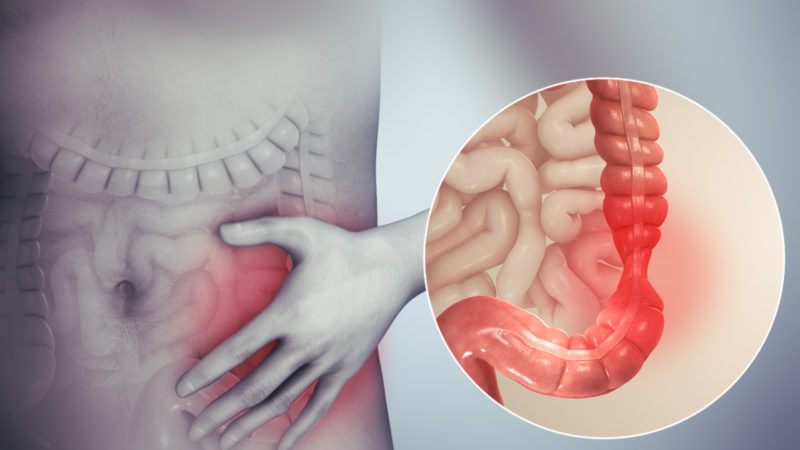List Of Common Signs and Symptoms of Gluten Intolerance

Are you confused if you have Gluten Intolerance? Want to know about some common signs of gluten intolerance? Would you like to have a list of foods to avoid if you have a gluten intolerance? If your answer is yes to all these questions, you are in the right place. Before jumping on the bandwagon, let us first learn what is gluten and what is gluten intolerance.
What is gluten?
Gluten is a family of proteins also known as prolamins that are naturally found in certain grains like barley, wheat, and rye. (source)
Gluten offers many culinary benefits and also brings a chewy, soft texture to gluten-rich food.
When gluten protein is heated, it forms an elastic network that can trap gas and stretch, allowing for rising or leavening and also maintaining mixture in the pasta, bread, and various similar products.
These unique properties make gluten a commonly used additive to promote moisture retention and improve the texture in processed foods.
What is Gluten Intolerance?
Gluten intolerance or sensitivity is a common problem worldwide. It causes an adverse reaction to gluten, which is a protein found in rye and barley. The most severe form of gluten intolerance is celiac disease.
Celiac disease is an autoimmune disease affecting at least 1% of the world’s population and may also damage the digestive system. About 13% of the people have non-celiac gluten sensitivity, which is a milder version of gluten intolerance and can still cause problems in everyday life.
Both these forms of gluten intolerance can cause a wide range of symptoms, many of which are not even related to digestion.
Let’s discuss the main signs and symptoms of gluten intolerance.
Signs of Gluten Intolerance (Gluten Sensitivity Symptoms)
Below are some of the common gluten sensitivity or intolerance symptoms. If you have these symptoms too, check with your doctor and get the gluten intolerance tests done.
1. Bloating
This is one of the common signs of gluten intolerance. When your belly is full of gas or feels swollen after eating food, it is referred to as bloating. Bloating is quite common in people and may have several reasons; however, it is also one of the signs of gluten intolerance. As per a study, 87% of people with non-celiac gluten sensitivity experience regular bloating. (source)
2. Constipation, Diarrhea, and Smelly Feces
Occasional constipation and diarrhea are normal; however, it can be a cause of concern if it happens regularly. This is also one of the common gluten intolerance symptoms.
People with celiac disease experience small intestine infection after eating gluten-rich food. This can damage the gut lining and leads to poor absorption of nutrition, which results in digestive discomfort, constipation, or diarrhea.
Gluten can also cause digestive problems in people with no celiac disease. More than 50% of people with gluten-sensitivity experience regular diarrhea and about 25% of people experience constipation.
Some people with celiac disease also experience foul-smelling and pale feces due to improper nutrient absorption. Regular diarrhea can cause various health concerns like dehydration, electrolytes, and fatigue.
3. Abdominal Pain
Abdominal pain is very common and can happen due to many reasons. It is also one of the frequently occurring and common signs of gluten intolerance.
Around 83% of people with gluten intolerance experience abdominal discomfort and pain after consuming gluten foods.
4. Headaches
Various people experience migraines and headaches every once in a while. Migraines are also a common condition affecting 10-12% of the western population regularly.
Studies reveal that gluten-sensitive people may be more prone to migraines as compared to others. If you have a regular headache without any cause, it may be a sign of gluten sensitivity.
5. Feeling Tired
Tiredness is not quite linked to any disease; however, it may be an underlying cause of gluten sensitivity if you experience regular tiredness. Gluten-intolerant people are prone to tiredness and fatigue, especially after eating gluten-rich foods. (source)
According to a study, 60-82% of gluten-intolerant people commonly experience fatigue and tiredness. Gluten intolerance can also cause anemia, which can cause more lack of energy.
6. Skin Problems
Gluten sensitivity can also affect the skin. A blistering skin condition called dermatitis herpetiformis is a skin symptom of celiac disease.
A gluten-free diet can have a positive effect on several skin diseases, which includes:
- Psoriasis:- it is an inflammatory disease that causes reddening and scaling of the skin.
- Alopecia areata: This autoimmune disease appears as a non-scarring hair loss.
- Chronic urticaria: in this condition, people experience pink, itchy, recurrent, or red lesions with pale middle.
Read More:- learn All About The Benefits and Alternatives to Wheat Germ
7. Depression
Depression is becoming a growing mental health concern worldwide. It affects around 6% of adults every year. The common symptoms of depression include sadness and feeling of hopelessness.
People facing digestive issues are prone to depression and anxiety in comparison to healthy individuals. This is also a common symptom among people who have celiac disease. There are a few theories on how gluten sensitivity causes depressions:
- Abnormal Serotonin Levels: Serotonin, also known as the happiness hormone, is a neurotransmitter type that helps the cells communicate. A decrease in the number of Serotonin is linked with depression.
- Gluten Exorphins: It is a peptide formed during the digestion of gluten proteins. These interfere with the nervous system and increase the risk of depression.
- Changes in Gut Microbiota: An increase in the amounts of harmful gut bacteria and a decrease in the good bacteria affects the central nervous system and increases the chances of depression.
There are several studies that show that depressed people report signs of gluten intolerance and follow a gluten-free diet as it makes them feel better.
8. Unexplained Weight Loss
Sudden unexpected changes in weight are always a cause of concern. There are various reasons behind unexpected weight loss; however, it is one of the most common signs of undiagnosed gluten intolerance.
A study presents that celiac disease patients lose ⅔ of their weight in 6 months before diagnosis.
9. Iron-Deficiency Anemia
Iron-deficiency, also known as anemia, is one of the most common deficiencies around the world and affects 5% of American women and about 2% of American men. (source)
Iron deficiency’s common symptoms are fatigue, low blood volume, dizziness, shortness of breath, pale skin, headache, and weakness.
People with celiac disease experience impaired nutrient absorption in the small intestine, which results in reduced amounts of iron absorption. Anemia is one of the very first and prominent gluten intolerance and sensitivity symptoms. (source)
As per various studies, iron deficiency may be present in both adults as well as children with celiac disease. (source)
10. Anxiety
Anxiety affects around 3-30% of people all around the world. It includes feelings of nervousness, worry, agitation, and unease and goes hand in hand with depression. People with gluten intolerance are prone to panic attacks and anxiety as compared to healthy individuals.
According to a study, about 40% of individuals with gluten sensitivity report regular anxiety.
11. Autoimmune Disorders
Celiac disease is a type of autoimmune disease which forces the immune system to attack the digestive tract after consuming gluten-rich food.
Having autoimmune diseases makes you prone to other autoimmune diseases as well, like thyroid. Also, autoimmune thyroid is also a major risk factor for depressive disorders and emotional disorders.
This is why celiac disease is common in people with other autoimmune diseases like IBD, type 1 diabetes, and autoimmune liver disease. However, non-celiac gluten sensitivity is not associated with increased risk for other types of autoimmune diseases, nutritional deficiency, or malabsorption.
12. Joint and Muscle Pain
There are various reasons why individuals experience muscle pain and joint pain. There is a theory that individuals with celiac disease are genetically over-sensitive or have an over-excitable nervous system. Therefore it lowers their threshold to activate sensory neurons, which causes joint and muscle pain. (source)
Exposure to gluten can also cause inflammation in individuals who are gluten sensitive. This inflammation also results in full-body pain, including muscles and joints.
13. Leg or Arm Numbness
Another one of the surprising signs of gluten intolerance is Neurotherapy, which involves tingling or numbness in the legs and arms. This condition is fairly common in people with vitamin B12 deficiency and diabetes. This can also be because of toxic things like alcohol consumption.
People with gluten sensitivity and celiac disease are at higher risk of experiencing leg and arm numbness in comparison to healthy individuals.
While the cause for the same is still not known, some studies link it with the presence of antibodies in the body related to gluten intolerance.
14. Brain Fog
Brain fog is a feeling of not being able to think clearly. Individuals experiencing brain fog describe it as forgetful, mental fatigue, or feeling cloudy, facing difficulty in thinking (source).
Having a foggy mind is one of the common gluten sensitivity symptoms, which affects about 40% of gluten-intolerant individuals. These symptoms are a reaction of the body to various gluten antibodies; however, the exact reason is unknown.
List of Foods To Avoid:
Here is a list of food items that you should avoid if you have a gluten intolerance.
1. Gluten-containing grains
- wheat
- triticale
- Rye
- barley
- Farina
- kamut
- spelt
- farro
- wheat berries
- couscous
2. Most crackers, bread, and wraps
- white bread
- potato bread
- whole wheat bread
- wheat crackers
- rye bread
- sourdough bread
- flour tortillas
- whole wheat wraps
- flatbread
- bagels
3. Certain condiments
- soy sauce
- marinades
- salad dressings
- barbecue sauce
- spice blends
- cream sauces
- malt vinegar
- gravy mixes
- ketchup
4. Most baked goods
- cakes
- doughnuts
- Pastries
- cookies
- soft and hard pretzels
- muffins
- pancakes and waffles
5. Wheat-based pasta
- noodles
- gnocchi made of wheat flour
- Dumplings
- spaghetti
6. Some snack foods
- pretzels
- chips
- cereal bars
- granola bars
- cookies
- energy bars
- snack mixes
- candy bars
7. Certain beverages
- beer
- drink mixes
- premade coffee drinks
- bottled wine coolers
- commercial chocolate milk
8. Several processed foods and other items
- meat substitutes, such as hot dogs and veggie burgers
- egg substitutes
- processed cheeses
- prepared lunch meats
- soup mixes
- canned soups
- puddings
- ice creams
- breakfast cereals
- fried foods
- instant dessert mixes
- flavored tofu
Instead, eat fruits, vegetables, legumes, healthy fats and oils, condiments, nuts, and seeds.
Final Words:
There are various signs and symptoms of Gluten Intolerance. However the above mentioned list has the most common symptoms with detailed explanation.
If you experience these symptoms regularly without any particular cause, then it may be a negative reaction to the gluten food in your diet. If this is the case with you, consult with your doctor or try removing gluten from your diet temporarily to see if it helps.






